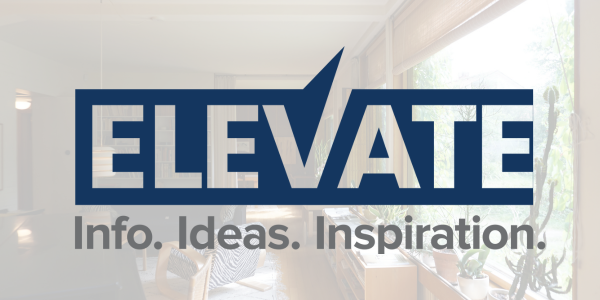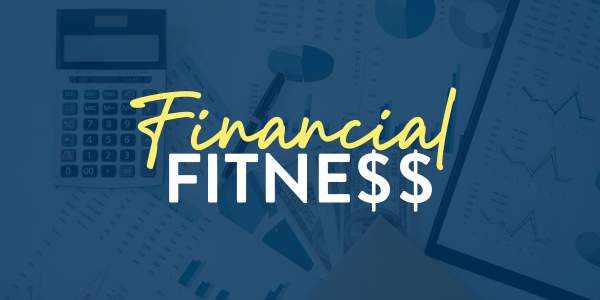
Just when you think you’ve got it all figured out, the housing market changes. Well, here’s the truth: No one has it all figured out. Being mortgage professionals, however, we do understand the ins and outs of the market and how today’s climate affects your homebuying ability and the mortgage process.

So without further ado, here are the top mortgage questions, their answers, and a few strategies for tackling any challenges in today’s market.
What Drives Interest Rates?
There are a few factors that drive interest rates. The health of the U.S. economy is one of them. Our economy is based on supply and demand—and that applies to homebuying as well.
When many people want to buy homes and get mortgage loans, the interest rate will generally rise. When there is less demand for homebuying and mortgage loans, the interest rate normally falls.
Inflation can also cause the interest rate on mortgage loans to rise. As inflation increases, purchasing power decreases. To compensate for this, mortgage lenders will raise the cost of borrowing (i.e., the interest rate).
The Federal Reserve is another common source of interest rate ebbs and flows, as you might have noticed over the past two-plus years. It’s more expensive for banks to borrow money when the Fed raises the federal funds rate, so you can guess what happens next. That’s right: Banks will raise their interest rates.
There are a few other factors that can impact interest rates, and you should know that your behavior is one of them! Credit score, type of mortgage, credit history, discount points, the life of the loan, and what type of home you’re buying can all impact your interest rate.
How Long Is My Mortgage Pre-Approval Good For?
Mortgage pre-approval—also known as that shiny letter lenders supply to sellers and their agents that verifies that you’re pre-approved to purchase a home up to a certain dollar amount—is typically good for 60 days. After that, your initial review will need to be updated, which means you’ll once again have to supply your lender with credit, income, and asset verification documentation.
Though pre-approval is not mandatory to obtain a home loan, it is often required by real estate agents and sellers, especially in a highly competitive market like today’s. Pre-approval not only tells you how much home you qualify for, but what your monthly payments on the mortgage would be.
Plus, you can’t overlook the fact that pre-approval lets you know that you can qualify for a certain loan amount. If you’re not hitting the number you want, you’ll have time to work on your ability to qualify before you’re ready to submit an offer on a home.
Can I Change Jobs During the Homebuying Process?
You can do a lot of things … but should you change jobs during the homebuying process? It’s not the ideal scenario, but there are ways to work around it. Your lender will need to verify your new income, and they may need documentation related to your employment, including a W-2 form, among other paperwork.
The most important thing for lenders to see is consistency in your employment. If you’ve had a few career changes recently, you may want to consider a nonconforming loan, which is a little more lenient on requirements like credit score and debt-to-income ratio than a conventional loan.
Our APM Loan Advisors are happy to discuss any current or expected job changes with you. The sooner you open the lines of communication on something like a job change, the easier it will be to work around!
What if My House Hasn’t Sold, but I Want to Make an Offer on a New One?
That’s the stressful situation every homeowner wants to avoid. But it’s not as bad as it sounds: APM offers a bridge loan that helps “bridge” the gap between the time you buy a new home and the time your current home takes to sell. This comes in handy if you need the proceeds from this home sale to fund your new purchase.
The best part is that buyers can now qualify for their new home before they’ve sold their existing home—and they can make an offer on a new home without a contingency. A local APM advisor can tell you more.
How Do I Compete with All-Cash Offers?
You mean aside from being an all-cash buyer yourself? That’s easy. Use APM’s CashBuys Program. This program allows APM to provide a fully underwritten and conditional loan approval before you start your homebuying journey.
Once you’ve found your dream home (but before you’ve made an offer), simply let your APM Loan Advisor know that you want to use the CashBuys option. They’ll provide a certificate to include with your offer.
After that, your offer is submitted—along with waived financing and appraisal contingencies—as a commitment to come with cash. APM will work to secure your financing before your close date, but if that doesn’t happen, the home will still be purchased for cash by Power Buyer LLC. It is then resold to you at the same price once your financing goes through.
This allows you to compete among the cash buyers and win deals the way they do!
Can I Use the Rental Income from the Investment Property I’m Buying to Help Qualify for a Mortgage?
Typically, yes. We know it can be hard to qualify for multiple mortgages without factoring in the projected rental income on the new property. To do this, you’ll need to obtain comps (comparables) in your market that show what similar homes are renting for.
This is something your real estate agent can help with. Once you and your realtor have calculated what your future rental income is likely to be, you’ll need to adjust for maintenance and repairs, possible tenant vacancy, missed rent payments, and other circumstances that can eat away at that number.
For these reasons, lenders will typically allow you to use 75% of your future rental income number to help you qualify for a mortgage loan. As with all home loans, your ability to qualify for an additional mortgage will involve your debt-to-income ratio, credit score, the type of mortgage, and the type of home you’re buying.
APM is well-versed in investment properties, as well as second homes and vacation properties. As such, we’re happy to walk you through any questions or scenarios you may have based on your unique financial situation.
These are the top mortgage questions our Loan Advisors are fielding right now, but we know every situation is different. That’s why we’re always here to answer your questions based on your personal goals and concerns. Call us anytime at 916-960-1325.







